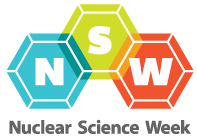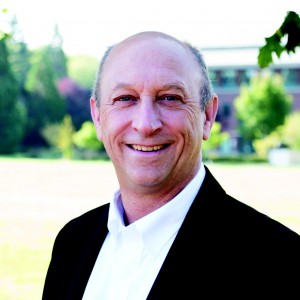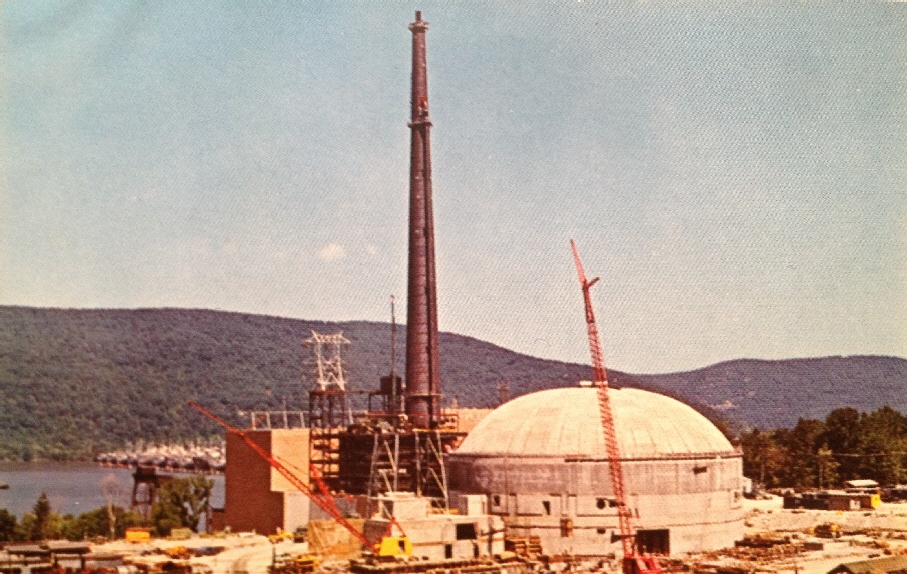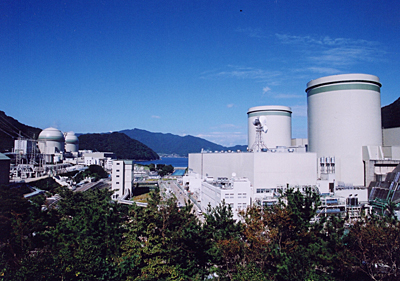Marie Curie: The Woman Who Used Radiation to Save a Million Lives
By: Priyarshini Ghosh
The ANS Nuclear Cafe is a blog owned and edited by the American Nuclear Society. Information contained on the ANS Nuclear Cafe has been provided by numerous sources. Therefore, the American Nuclear Society assumes no responsibility or liability for the accuracy of information contained herein. DISCLAIMER: The views expressed in posted articles do not necessarily reflect the views of the American Nuclear Society. The views expressed here are those of the individual authors. ANS takes no ownership of their views. The American Nuclear Society assumes no responsibility or liability for any use or operation of any methods, products, instructions, or ideas contained on this site.

A message from NV5, Inc.
Seconds Matter: Rethinking Nuclear Facility Security for the Modern Threat Landscape
By: Priyarshini Ghosh
by Gene Grecheck and Brett Rampal
We've seen in the last two weeks both good news and bad for the U.S. nuclear plant fleet, as one nuclear unit under construction came on line and one of the earliest remaining in the U.S. was permanently shut down. The net effect? Raising the total rated megawatts of U.S. nuclear plants slightly, but remaining at the same number of nuclear units on line.
It is highly unlikely that the issues surrounding energy will make any difference in whomever we choose for our next President. Other concerns have drowned out energy as an important issue. That said, there are distinct differences among the four presidential nominees with regard to energy, particularly nuclear.
Live streaming on Facebook from Nuclear Science Week 2016 Big Event! Enjoy today's "live" matinee.
The American Nuclear Society (ANS) is a proud and active partner of Nuclear Science Week. ANS recommends that everyone share their tweets using the event hashtag: #NuclearSciWeek.

October brings many wonderful things each year, but of special interest to us is the annual National Nuclear Science Week (#NuclearSciWeek on social media) event which is intended to help everyone learn how nuclear science and technology works every day to improve their lives.

Klein: "We need to start somewhere"
At the ANS Annual Meeting in New Orleans in June, ANS President Andrew Klein introduced the Nuclear Grand Challenges project, which is aimed at understanding the technical challenges facing nuclear science and technology. To identify those challenges, ANS will be accepting ideas from members and the public from now until March 2017. Klein discussed with Nuclear News Associate Editor Tim Gregoire his goals for the project and how the final challenges will be chosen.

Indian Point Unit 1 under construction. Photo in Will Davis library.
A new article published by the Korea Times, entitled "Korea is second-fastest nuclear plant building country: IAEA" points up the fact that South Korea has historically built its nuclear plants on the average of 56 months (from construction start to commercial operation.) The article points up the fact that two nations normally thought of as nuclear power leaders and pioneers, France and the United States, have historically seen this average way up at 126 months and 272 months, respectively. I'd like to offer some comments -- not a defense, but just some comments -- on those numbers to provide perspective, since they're pretty long and, in the case of the U.S., extremely long.
The announcement made this past September 27 that Russia had signed an agreement with Cuba to cooperate in the advancement of nuclear technologies raised in some quarters the notion that Cuba might again aspire, eventually, to investigate nuclear energy. The details of the original effort to give nuclear energy to Cuba were remembered in some places; we will take a brief look at that effort and what became of it.
America, Japan and China are racing to be the first nation to make nuclear energy completely renewable. The hurdle is making economic the extraction of uranium from seawater, because the amount of uranium in seawater is truly renewable as well as inexhaustible.
Special ANS Friday Matinee edition by Will Davis
The splitting of the atom did more than simply expand our knowledge of physics - it halved the course of history, dividing us with the before and the after.
On Wednesday, September 21, Japan's Chief Cabinet Secretary Yoshihide Suga announced that the nation would undertake a thorough review of the Monju fast-reactor project. Nikkei Asian Review quoted Suga as saying that the government "will fundamentally review it by the end of the year, including (the option of) scrapping it." Thus, it would appear that Monju may finally be facing the final curtain as a working project - although it has not operated in some time.
Today's Friday Nuclear Matinee video of climate policy expert Michael Shellenberger comes to us from TED.com. "We're not in a clean energy revolution; we're in a clean energy crisis," says climate policy expert Michael Shellenberger. His surprising solution: nuclear. In this passionate talk, he explains why it's time to overcome longstanding fears of the technology, and why he and other environmentalists believe it's past time to embrace nuclear as a viable and desirable source of clean power. Enjoy the 14 minute video.

Takahama NPP courtesy Kansai Electric Power. Units 1 and 2 are on the right; Units 3 and 4 are in the distance on the left.
Kansai Electric Power has announced its plan to revise various features at its Takahama Nuclear Plant Units 1 and 2, and the work will take several years, according to the Japan Atomic Industrial Forum and Kansai Electric Power itself.
On June 2 Exelon announced the early retirement of two nuclear power plants (Quad Cities and Clinton) in Illinois. On June 21 Pacific Gas and Electric announced a decision to close the Diablo Canyon nuclear plant in California. Those decisions have been explained in part on cost. The plants are aging, maintenance cost has been increasing, and low natural gas prices have reduced the cost of competing electricity. When a nuclear plant's contract comes up for renewal, politicians who think natural gas prices may stay low forever refuse to renew the nuclear plant's contract at a higher price.
It's time for the Friday Nuclear Matinee. Today we feature an interview with ANS member Meredith Angwin. Meredith was a guest on the Pat McDonald show: Vote for Vermont. The interview included the following topics:
As was reported here last week, Kagoshima Prefecture (Japan) Governor Satoshi Mitazono, who was elected to this office in July after running on a solidly anti-nuclear-energy ticket, made a formal request to Kyushu Electric Power on August 26. Further significant events have now transpired.
While the nuclear community has been encouraged by the recent action taken by New York giving recognition for the intrinsic value of carbon-free emissions from nuclear power, the same cannot be said for California. New York has found value in keeping their nuclear power plants operational, but unfortunately, given the political situation in California, it is unlikely that any proposed resolutions in favor of keeping Diablo Canyon Power Plants (DCPP) open will happen.